Turning Facebook Into an
Educational Asset
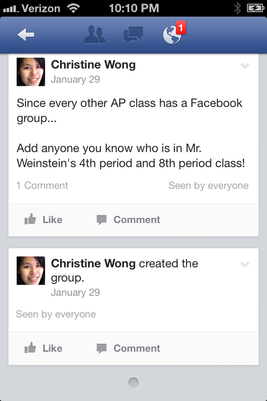
Almost every student in my two sections is a member, and it has been a fantastic conduit of information and knowledge, teaching and learning.
Our group is five months old, but there are already hundreds of posts, comments, and likes. Every inch of it has educational value and I'm going to demonstrate that value with this blog's assorted examples.
Special thanks to Christine Wong for starting the group -- and for being nice enough to invite me to join! (There are plenty of Facebook groups out there that the teachers are not a part of ...)
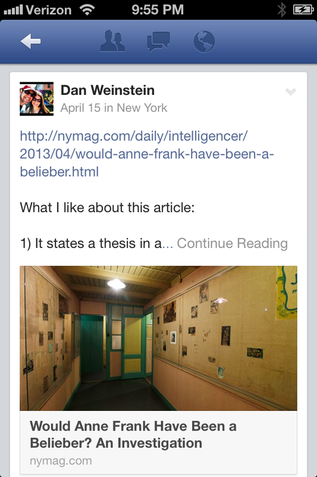
I like this one because (a) It's about the curious combination of Anne Frank & Justin Bieber; and b) It's a great writing example to analyze for our class lessons.

My students know I live for sentence variety, and properly using punctuation like the semicolon has a special place in my heart.
(Kurt Vonnegut disagrees: “Here is a lesson in creative writing. First rule: Do not use semicolons. They are transvestite hermaphrodites representing absolutely nothing. All they do is show you've been to college.”)
Students will frequently post videos and articles of content that is related to our studies. Why should I be the only one!?
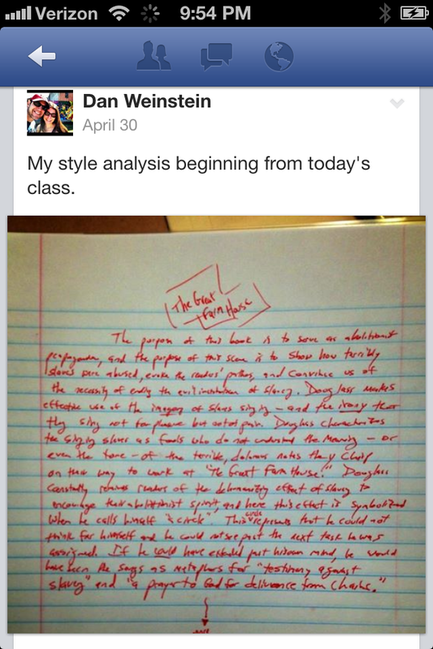
That night I posted what I had written.
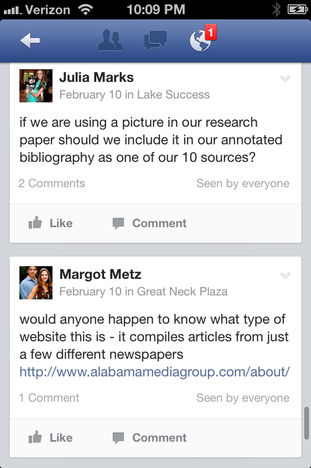
It's a wonderful forum for questions and answers -- and I don't have to give them all the solutions! Quite often students help other students through the on-going discussions.
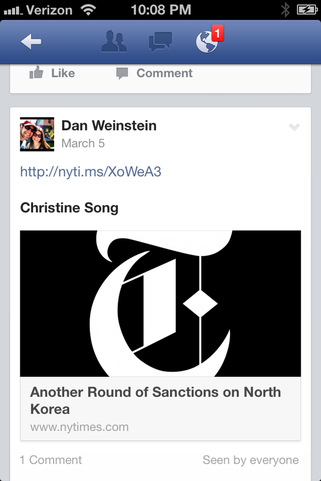
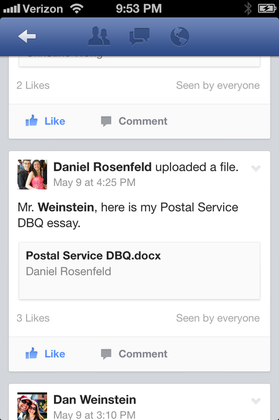
This one: The 2012 Synthesis Essay on Restructuring the USPS.
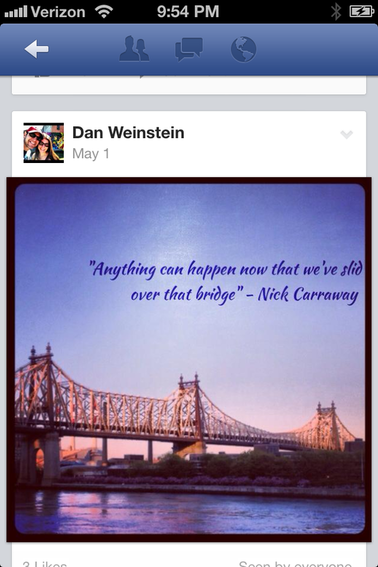
These are two examples of some of the artsy postings I have created: Above is a student's response to my Abstract Art lessons. Right is an Instagrammed photo I took from the end of my street.

(Isn't it amazing that two of my favorite teaching examples -- Jay Z and Jay Gatsby -- became forever intertwined this past year?)

My class had a dramatic improvement in award winners and published authors this year -- because of this Facebook Group!
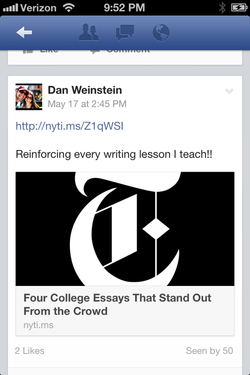
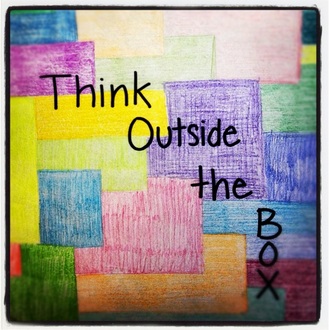
Whatever way you choose to use technology to improve your teaching, I encourage you to experiment with novel concepts, pursue new ideas, and take risks!
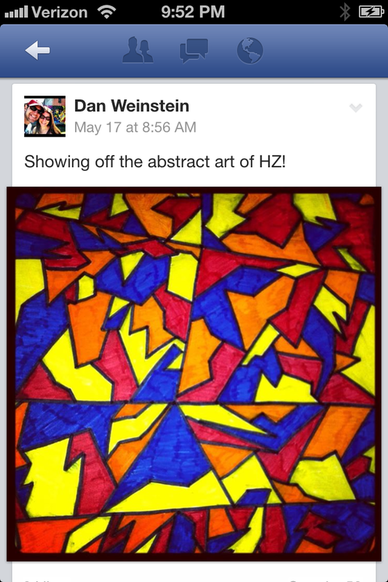
 RSS Feed
RSS Feed